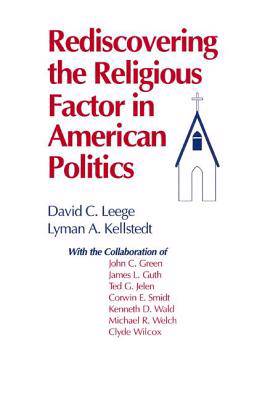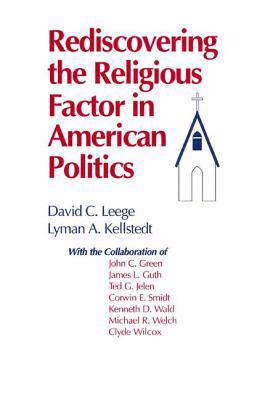
- Afhalen na 1 uur in een winkel met voorraad
- Gratis thuislevering in België vanaf € 30
- Ruim aanbod met 7 miljoen producten
- Afhalen na 1 uur in een winkel met voorraad
- Gratis thuislevering in België vanaf € 30
- Ruim aanbod met 7 miljoen producten
Zoeken
Rediscovering the Religious Factor in American Politics
David C Leege, Lyman a Kellstedt
Hardcover | Engels
€ 274,95
+ 549 punten
Uitvoering
Omschrijving
This text addresses whether and how religion and religious institutions affect American politics. For some time, analysts have argued that the conflicts of the New Deal era rendered cultural differences trivial and placed economic interests at the top of the political agenda. The authors and their collaborators - John C. Green, James L. Guth, Ted G. Jelen, Corwin E. Smidt, Kenneth D. Wald, Michael R. Welch, and Clyde Wilcox - disagree. They find that religious worldviews are still insinuated in American political institutions, and religious institutions still are points of reference. The book profits from the new religiosity measures employed in the 1990 National Election Studies. Part 1 discusses the study of religion in the context of politics. Part II examines religion as a source of group orientation. Part III takes up religious practices and their political ramifications. Part IV does the same for doctrinal and worldview considerations. Part V explores the sources of religious socialisation. In conclusion, Part VI reviews the research on religion and political behaviour and looks ahead to where work should proceed.
Specificaties
Betrokkenen
- Auteur(s):
- Uitgeverij:
Inhoud
- Aantal bladzijden:
- 320
- Taal:
- Engels
Eigenschappen
- Productcode (EAN):
- 9781563241338
- Verschijningsdatum:
- 30/06/1993
- Uitvoering:
- Hardcover
- Formaat:
- Genaaid
- Afmetingen:
- 152 mm x 229 mm
- Gewicht:
- 616 g

Alleen bij Standaard Boekhandel
+ 549 punten op je klantenkaart van Standaard Boekhandel
Beoordelingen
We publiceren alleen reviews die voldoen aan de voorwaarden voor reviews. Bekijk onze voorwaarden voor reviews.











